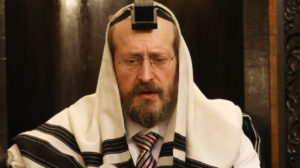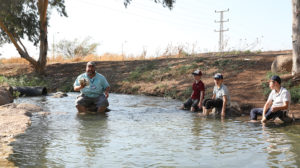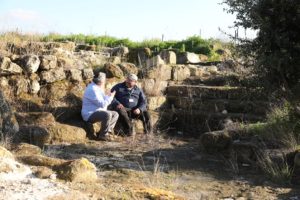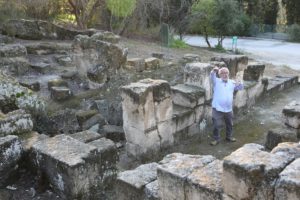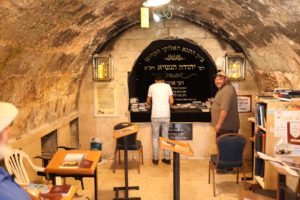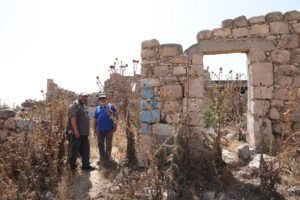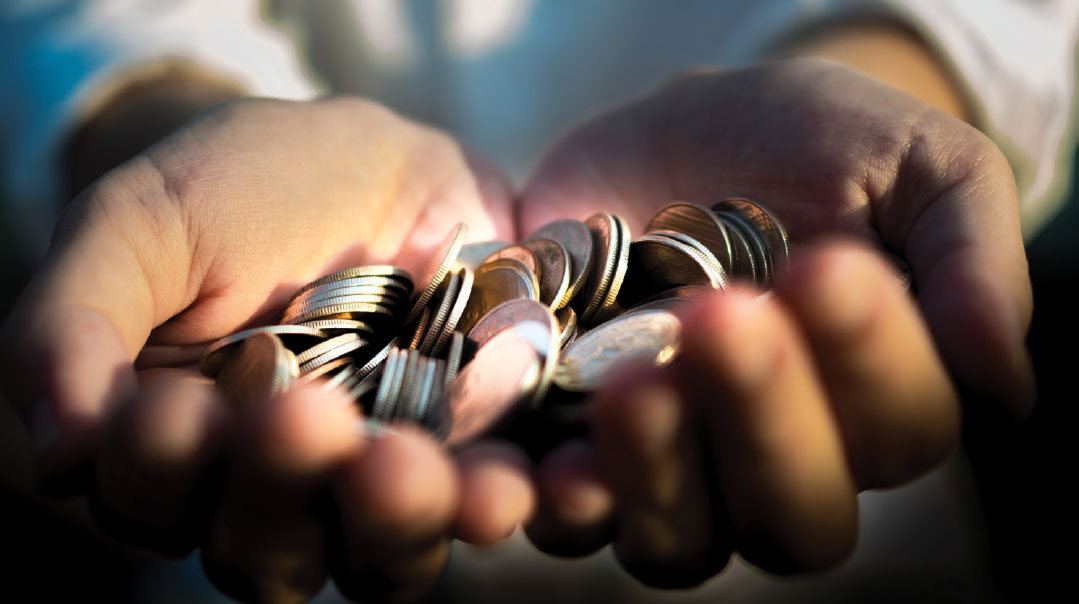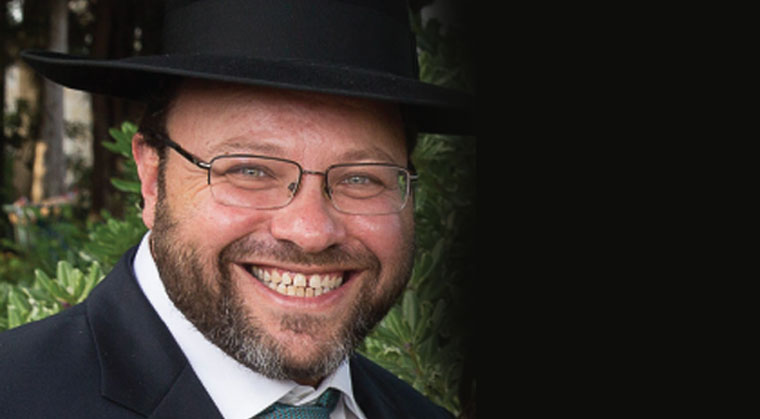Stayin’ Alive
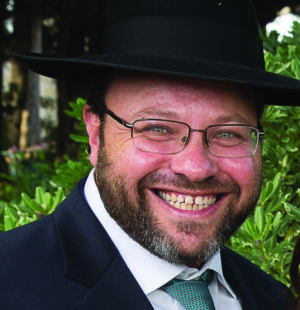
The neis of Chanukah was that Hashem showed us He is alive
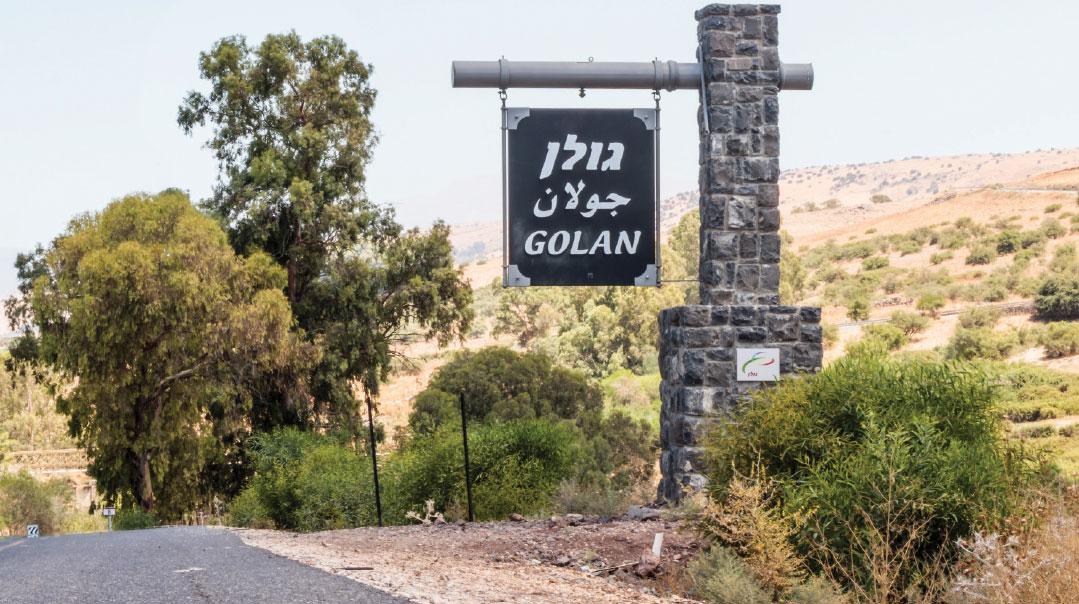
Does it ever get old, they wanted to know? The same thing day in and day out, again and again. Masada–Dead Sea–Ein Gedi. Ir Dovid–Old City–Jerusalem Tunnel Tour. Meron-Tzfat-Teveria. Golan Heights war sites–chocolate factory–winery. And other itineraries. Don’t you ever get sick of it?
The answer is a decided no. Absolutely not. Do you ever get bored of your children, your wife’s cooking, your Torah class? Do you get sick of cholent… ever? Okay, you don’t have to answer those questions. But honestly, it really never gets boring.
I wake up every morning and am in awe that I actually get paid to bask in the glory of our holy Promised Land. It’s awesome. The experience of seeing it anew each day through the eyes of my tourists makes it even more amazing. It’s like showing off your new child or grandchild. Imagine getting paid to do that as well. Then you get a bit of a feel for how awesome my life is.
To make the deal even sweeter, Chazal tell us that someone who walks four amos in Eretz Yisrael is guaranteed a portion in Olam Haba; according to the Shulchan Aruch, and elaborated on by the Mishnah Berurah (248:28), one fulfills a mitzvah each time. You are even permitted to disembark from a ship on Shabbos, something that is prohibited at other ports, to fulfill this mitzvah. Even tourists!
When I was in yeshivah, they would tell us every word of Torah you learn is a mitzvah. They didn’t tell me that every step I took as I toured around the land of Israel was also a mitzvah. They left that out.
It’s understandable, I guess. Most things get boring after a while. For my kids, it’s after five minutes. We need new and exciting experiences. Something different. Things you’ve never done before. How do you stay inspired doing and seeing the same thing day in and day out?
I remember once posing that question to one of my clients, who was a sixth-grade rebbi. How do you keep doing it? “Eilu metzios shelo v’eilu chayav l’hachriz — These lost objects are yours and these you have to return.” The first Mishnah that all kids start with — again and again and again, year after year. Doesn’t it get boring?
He told me the secret is that he doesn’t teach Mishnah. If he did that, of course it would get stale after a while. He teaches students. Talmidim. Each year it’s new, because each year there are new students. Each student learns differently, is taught differently, experiences and appreciates it differently. And uniquely. Each year it’s an entirely new limud — a new lesson that has never been taught before. I guess I can say the same thing for tour-guiding. Each group is different. Each family has its own nuances and connection to Eretz Yisrael, which comes out through our tours together.
But there is a deeper secret for how to keep things fresh; one that the Torah teaches us and that we read each year before Chanukah. The story of two individuals who managed to keep their relationship alive, despite not seeing each other for 22 years: Yaakov Avinu and Yosef Hatzaddik.
After Yosef is sold down to Mitzrayim, the Torah tells us Yaakov was inconsolable: Vayima’en l’hisnachem — and he refused to be consoled.
Rashi explains the reason for Yaakov’s inconsolability: Only for the the dead is there a gezeirah to be forgotten from the heart. Not for the living.
Interestingly enough, we find those same words when Yosef is tempted by the wife of Potifar, which teaches us that Yosef never forgot his father either. When Yosef doesn’t succumb to the nisayon, the pasuk (Bereishis 39:8) tells us: Vayima’en — and he refused.
The Midrash notes that he saw the image of his father before him. Reb Asher Freund suggests it is precisely because Yaakov was vayima’en l’hisnachem — he refused to be consoled — that Yosef in turn was connected to his father and had the strength to prevail in that nisayon. Despite 22 years of distance, it was as if his father was still at his window. His father was still alive for him as well.
The Baal Hafla’ah explains the phenomena of why one cannot be consoled for someone who is still alive with the pasuk in Mishlei: “Kamayim hapanim lapanim, kein lev ha’adam l’adam — Just like the water reflects the face of a person, so too does the heart of a man to another.”
When two souls are connected, their hearts are connected as well. As long as one is alive and connected, the other cannot possibly forget about him. They are reflecting and shining still in each other’s souls. It is only after someone is dead and no longer around to keep that connection alive that the consoling and forgetting can begin. Yaakov didn’t stop thinking about Yosef for a moment, because Yosef never stopped thinking about Yaakov.
We’re approaching the festival of Chanukah. We remember the miracles Hashem performed for our ancestors during the second Beis Hamikdash. In al hanissim we talk about the plot of the Greeks. Unlike Purim, when Haman tried to wipe us out, the Greeks had a different angle.
Their objective was l’hashkicham Torasecha — they wanted us to forget. They wanted to destroy the spark and connection between us and Hashem. They had no problem with us worshipping Hashem — davening, sacrifices — as long as it was the same old-same old studies of ancient irrelevant texts and worship of a god like theirs, with no real connection. A dead one. One that can be forgotten.
To a large degree they succeeded. A large portion of Jews “Hellenized.” They were cultural Jews. Gastrointestinal ones who certainly liked cholent, kishke and latkes; and, since they were Israeli, jelly doughnuts as well. They were practitioners of the ancient Jewish traditions but disconnected entirely from their source. Judaism had no meaningful relevance to their lives.
The neis of Chanukah was that Hashem showed us He is alive. He was rav es rivam, dan es dinam, and nokeim es nikmasam. He delivered the mighty into the hands of the weak, the many into the hands of the few, the wicked into the hands of the righteous, the sinners into the hands of those who occupy themselves with Your Torah. He made a yeshuah gedolah for His People, Yisrael k’hayom hazeh — to this very day.
We will never lose that connection, never forget it. Only the dead can be forgotten. Torah that is living will always be alive. Will always be connected. Will always have a spark that can never be extinguished. It is until “this very day,” 2,200 years later.
Chanukah is an incredible time to tour Israel. It never gets old. To walk through the streets of the Old City of Jerusalem and see menorahs at the entrance of each doorway is to know that we merited to return to this land because we never forgot it. No matter where we were exiled, we lit candles and told our children about the miracles of those days and the miracle that it is still here in our times. The miracle that we have never forgotten and will never forget.
Each day we daven, each candle we light, each daf we study, each step we take in Eretz Yisrael, we are attesting to the connection and eternality of Hashem, of our land and of Torah and mitzvos. That, my friends, will never get old. May we merit to see the final culmination of the blessing we say when we light the candles — the brachah that tells us that what happened then is just as fresh as if it happened today:
She’asah nissim la’avoseinu bayamim haheim bazman hazeh — that He will perform the ultimate miracle of those days once again in our times.
Rabbi Schwartz, a former outreach professional, rosh kollel, and rav in New York, Iowa, Virginia, and Seattle, moved to Eretz Yisrael in 2010 where he is the rav of the Young Israel of Karmiel and a professional tour guide. His column will appear once a month.
(Originally featured in Mishpacha, Issue 790)
Oops! We could not locate your form.

